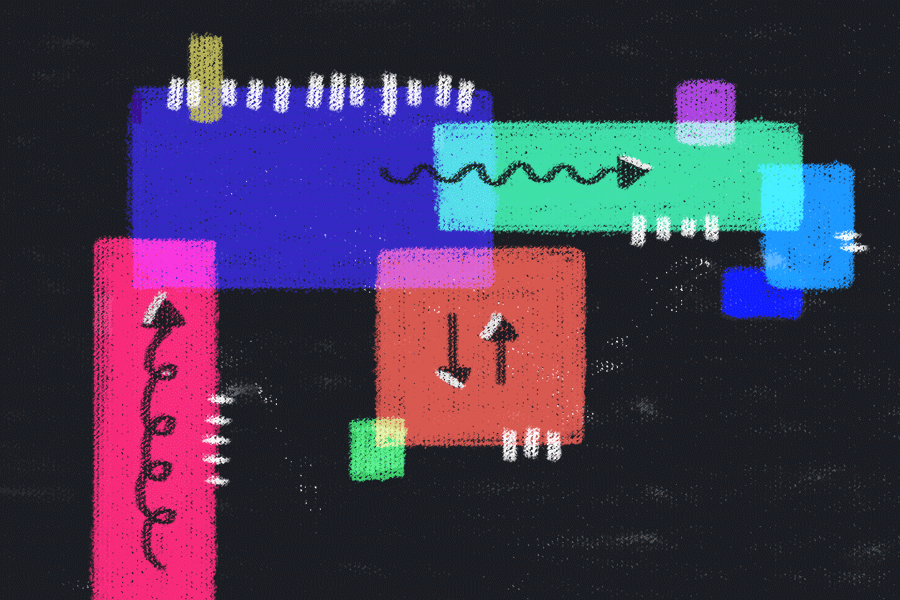Beyond the Single Story
This year the holy month of Ramadan and PRIDE month overlap. Traditionally, Ramadan is a period of peace and PRIDE is a time for celebration. This June, many in both communities are in shock and mourning in the wake of the utterly tragic and senseless loss of 49 young lives in Orlando, Florida.
I think about youth from both communities and beyond. I think about what we in the youth sector can do to create safer spaces, build inclusive communities, and actively resist and reframe harmful and exclusionary narratives and practices.
Both queer and Muslim communities, and queer Muslim communities, experience discrimination and marginalization. In university classrooms, we talk about marginalization as a process that has roots in something academics call “othering.” Dr. Zuleyka Zevallos gives an overview of the many dimensions of othering here. Othering involves creating in-groups and out-groups. It is a process of perceiving difference as threatening and exercising power “over” usually in order to uphold inequitable power relations. It often involves failing to see people who are different as having value. At minimum, it is a failure of ethical imagination.
Chimamanda Adichie explores the risks and costs of othering in her insightful TED Talk “The Danger of the Single Story”. At YouthREX, we share this video with our incoming NOISE for Social Change Fellows. The video helps to open a discussion about the violence of frames – the ways some youth or places are framed as Other – and the real effects these framings can have. We talk about the ways research frames and tells a story about youth, and then how these stories can be critically examined. We then work to use the tools research offers to tell different stories – to tell our stories.
Critical research and media literacy, and the ability to read and write real-complicated stories is essential as the sensationalist 24-hour news cycle pumps out stories that are neither critical nor complicated.
I reflect on the sage words of Thomas King who shared the following insight in his Massey Lectures: “the truth about stories is that that’s all we are.”
King cites Ben Okri, the Nigerian poet and author who suggests:
“One way or another we are living the stories planted in us early or along the way, or we are also living the stories we planted – knowingly or unknowingly in ourselves. We live stories that either give our lives meaning or negate it with meaninglessness. If we change the stories we live by, quite possibly we change our lives” (King, 2003, p. 154).
I think back to one of our first YouthREX workshops in the Central Hub, titled: “Unpacking Our Stories: Critical Narrative Therapy and Youth Voice”. The central tenet of narrative therapy can be summarized as: “the problem is the problem; the person is not the problem”
Facilitated by Dr. Harjeet Badwall, YouthREX Academic Lead and Jia Yao, some of the things we learned about and discussed in the workshop included:
-
- the important role story-telling and narrative play in many communities
- narratives can link past, present, and future, helping us to make meaning
- narratives as part of our socialization, that external narratives can frame “who we are” and how we imagine our life in relation to others
- narrative therapy can be a way of liberating our preferred identities from oppressive dominating – external narratives
Stories can be wondrous, but as King observes, they can also be dangerous. The stories we tell each other about each other and the stories we author about ourselves and others have never been more important because stories are more than stories: they are also actions.
One would hope that our socially mediated connectivity and increased mobility would help us to create new stories and form new understandings that enable us to work and live and learn better together.
As I reflect on the power and danger of single stories specifically in relation to youth work, and with respect to recent events, I think about the importance of deconstructing destructive and divisive narratives and telling our own stories that move beyond narrow one-dimensional black and white representations and welcome us to full-spectrum seeing and being.
Eid Mubarak and Happy PRIDE.
LGBTQ Organizations Around Ontario
CENTRAL HUB
Salaam Canada – Toronto
EASTERN HUB
Kind – Ottawa
NORTHWESTERN HUB
Pride Central – Thunder Bay
NORTHEASTERN HUB
Sudbury Pride – Sudbury
References
Adichie, C. (2009). The danger of a single story. TED Ideas worth spreading. https://www.ted.com/talks/chimamanda_adichie_the_danger_of_a_single_story?language=en
King, T. (2003). The truth about stories: A native narrative. House of Anansi.
Zevallos, Z. (2011) ‘What is Otherness?,’ The Other Sociologist, 14 Oct,https://othersociologist.com/otherness-resources/


